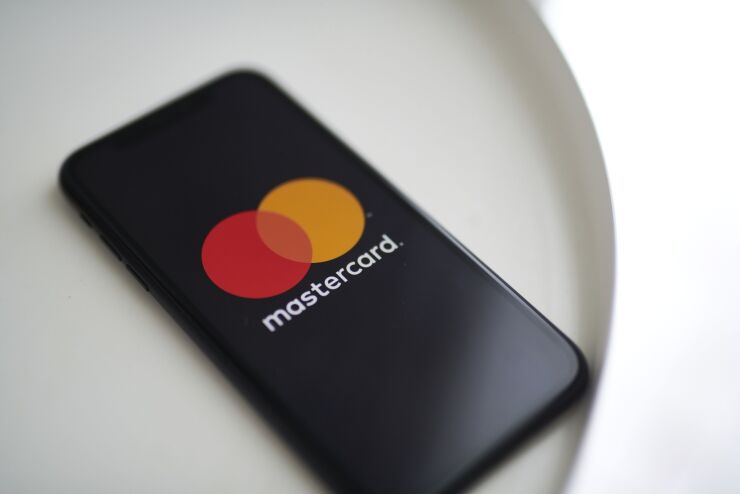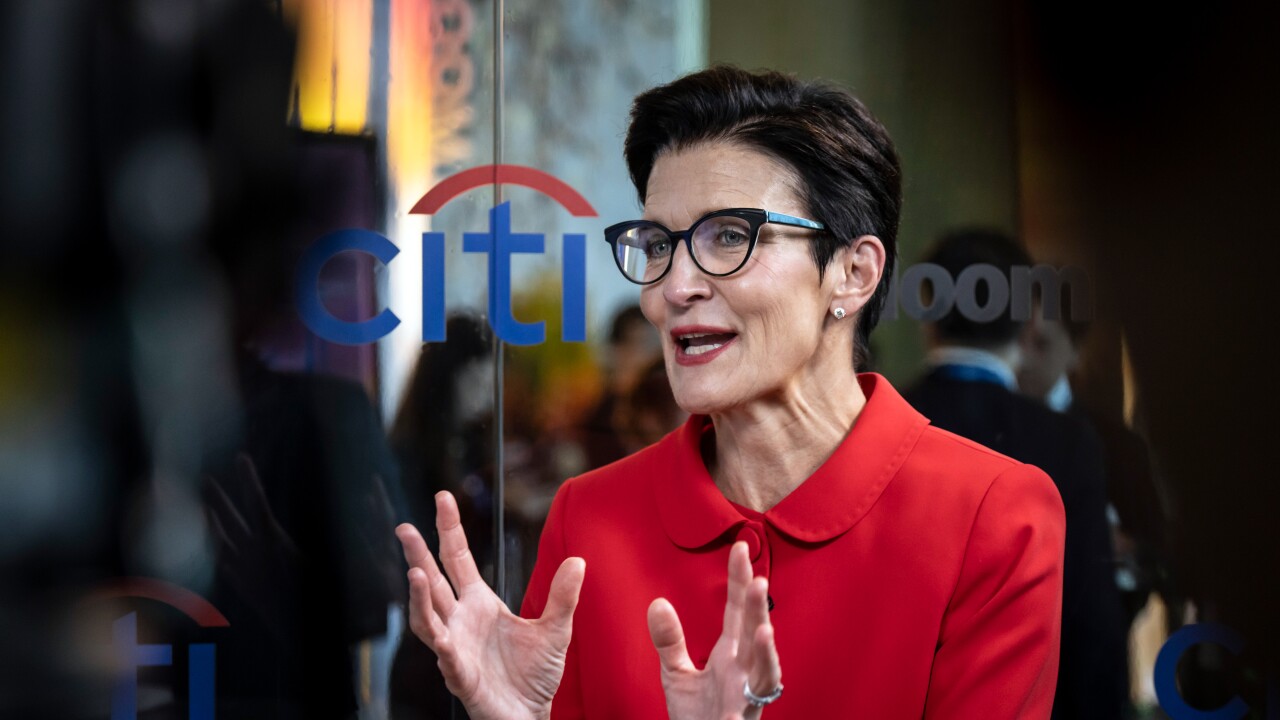
The
Monzo, a U.K. challenger bank with
Monzo did not design, implement and maintain adequate onboarding, risk assessment and transaction monitoring, the FCA said. It also signed up more than 34,000 "high risk accounts" between August 2020 and June 2022, despite an FCA requirement that Monzo not open new accounts for high risk customers while an independent review of the company was in progress.
"Monzo onboarded customers on the basis of limited, and in some cases, obviously implausible information, such as customers using well-known London landmarks as an address," Therese Chambers, FCA joint executive director of enforcement and market oversight, said in a release.
"This illustrates how lacking Monzo's financial crime controls were. This was compounded by its inability to properly comply with the requirement not to onboard high-risk customers."
The fintech has established and completed a financial crime change program consistent with the regulator's recommendations, the FCA said.
In an email, Monzo CEO TS Anil said, "The FCA's findings relate to a historical period that ended three years ago and draw a line under issues that have been resolved and are firmly in the past — with our learnings at the time leading to substantial improvements in our controls. I'm pleased the FCA recognises the significant investments we have made, as well as our ongoing commitment to managing these risks today." —John Adams

Bank of England fines Mastercard's Vocalink $16M
The Bank of England has fined Vocalink, a payment system operator and Mastercard subsidiary, 11.9 million pounds ($16 million) for failure to fix problems in its risk management frameworks.
Vocalink powers the U.K.'s real-time payments, settlement and direct debit systems, along with networks of over 47,000 ATMs, according to the company. It also processes over 90% of salaries, more than 70% of household bills and 98% of state benefits. Mastercard acquired Vocalink in 2017.
The fine was levied because Vocalink failed to fix issues in its risk management framework by the
"Vocalink fell short of its obligation to have adequate risk management and governance arrangements when responding to the Bank's Direction. Its failure to comply with that Direction in full has resulted in a significant fine," said Sarah Breeden, deputy governor for financial stability at the Bank of England, in a statement. —Joey Pizzolato

Paxos launches Global Dollar stablecoin in EU
Blockchain infrastructure and tokenization platform provider Paxos has launched its Global Dollar stablecoin, or USDG, across the European Union.
"As demand for stablecoins continues its rapid ascent, Paxos is incredibly proud to introduce USDG to the European market," said Paxos' Head of Strategy Walter Hesser in a statement.
USDG is available on Solana, ethereum and Ink blockchains, as well as crypto companies such as Kraken, Gate, Coinmetro, SwissBorg, Zodiac Custody, Orbital, Hercle, CoinsPaid, Bitwyre, Bitnet and HiFi, according to Paxos. It is regulated by the EU's Markets in Crypto-Assets, the Finnish Financial Supervisory Authority and the Monetary Authority of Singapore.
USDG is used in a stablecoin network called the Global Dollar Network, which counts Robinhood, Paxos, Anchorage Digital, Kraken and 20 other fintechs as partners.
Fiserv's

Europe's alternative payment network picks up support
The European Payments Initiative has added five new members in Belgium as the upstart initiative attempts to rival Visa and Mastercard. The new banks – Argenta, Bank Van Breda, Beobank, Crelan and vdk bank will deploy Wero, EPI's digital wallet and instant account-to-account, or A2A, payment product during the first half of 2026.
The
The European payments market is fragmented, though Visa and Mastercard control about 90% of the overall card market, according to
"Our decision to offer Wero as a standalone app reflects our commitment to flexibility and customer-centric innovation, ensuring our clients can access seamless payment experiences on their own terms," said Dirk Wouters, CEO of Bank Van Breda, in a

Mastercard pushes virtual cards for European business payments
The card network is integrating its virtual cards with payment technology from self-service portal Pay4You to capture corporate transactions that are tied to employees.
Mastercard and Pay4You contend these payments are often handled by account-to-account payments. The collaboration will initially launch in Europe.
"Corporate credit cards have long been underused in this area. That is about to change," said Lourens Stamhuis, CEO and co-founder of Pay4You, in a

Worldpay expands embedded payments
In an effort to capitalize on the popularity of
The product enables third-party developers to integrate payments with other software, with Worldpay managing reconciliation, risk and point of sale service.
Embedded payments refers to payment companies inserting checkout into other products, a trend that is gaining traction as more merchants add digital services. The practice is often referred to as "invisible payments," or linked to Uber, which attracted attention through its seamless payment experience.
Worldpay is expanding its technology as it awaits
Global Payments is expected to roll Worldpay's systems into the

Australia looks to advance A2A payments
The Australian Payments Network and the country's domestic payments provider Australian Payments Plus is looking to collect feedback from stakeholders and end users on the future of account-to-account payments, also known as Pay by Bank, in the country.
The consultation aims to "identify the current and future payment needs and expectations of the users of Australia's account-to-account payments systems, including consumers, businesses, government, financial institutions, payment service providers, and other key stakeholder groups," according to an APN release. The Reserve Bank of Australia and Commonwealth Treasury have both indicated support for the move.
Responses will guide the wider rollout of A2A payments in the country. "We're excited to hear from users of the payments system and other industry participants as we work together to define the next chapter of Australia's payments landscape," said APN CEO Lynn Kraus in a statement.
Last year, Sydney-based National Australia Bank worked with a London-based fintech, Banked, to

Castellum.AI CUSO lands $8.5M funding round
Castellum.AI, a credit union service organization specializing in anti-money laundering, know your customer and AI agent screening has secured $8.5 million in a Series A funding round.
The round was oversubscribed and led by Curql, a fund backed by over 130 credit unions, including Navy Federal Credit Union. BTech Consortium, a fund backed by more than a dozen banks including Customers Bank, and Framework Venture Partners, a fund backed by Canadian financial institutions including RBC, also participated.
"Credit unions face the dual threat of criminals using AI and legacy systems generating unnecessary compliance alerts on a daily basis," said Nick Evans, President and CEO of Curql, in a statement. "We're excited to invest in Castellum.AI because they're deploying AI agents that are fast, precise and explainable to regulators. Credit unions need access to next-generation technology to keep up and Castellum.AI is exactly what the doctor ordered."—Joey Pizzolato





